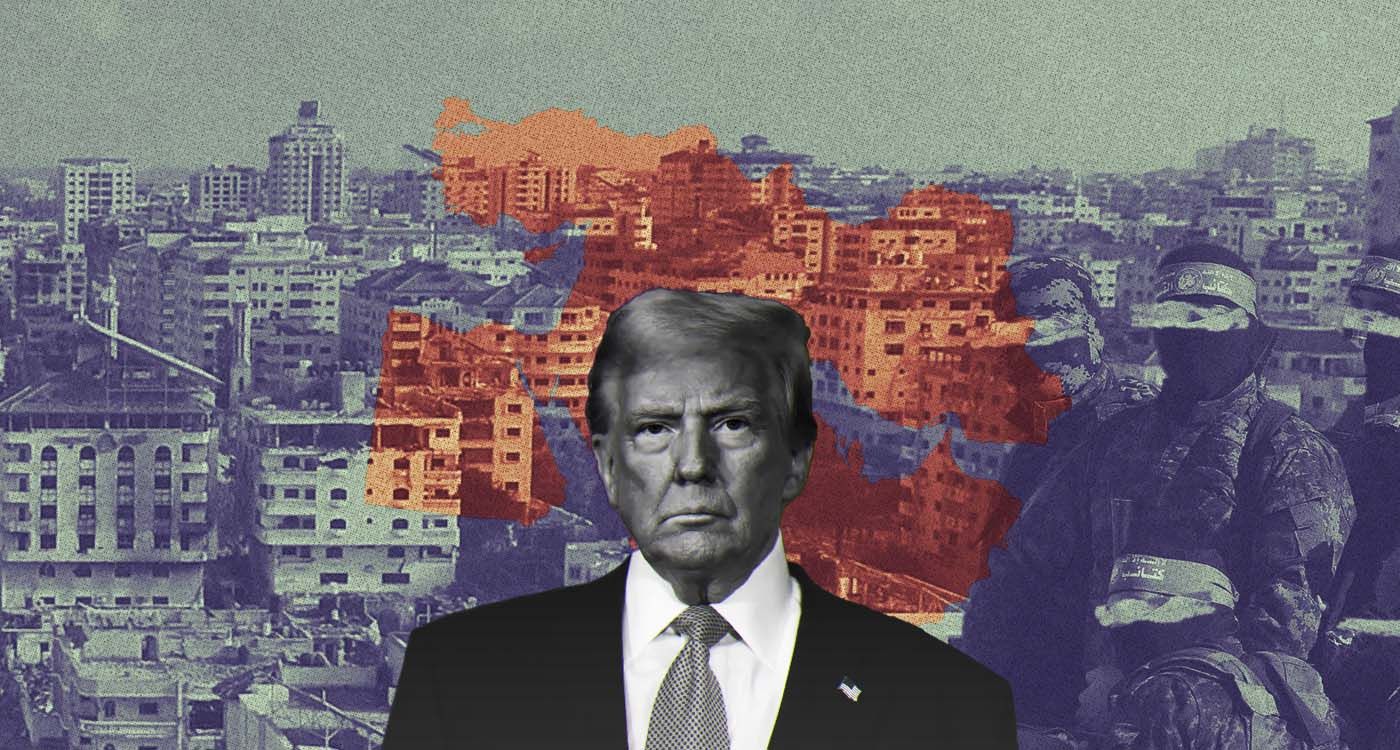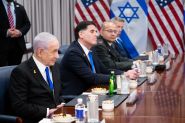- Home
- Middle East
- Diplomacy, Political Brinkmanship and the Murderous Dystopias

©This is Beirut
The peace plan submitted by President Trump is a major breakthrough after two years of open-ended cycles of violence in Gaza. Welcomed by Europeans, the Palestinian authority, Arab states, Russia, and China, it can definitely serve as a platform for a negotiated end of war. It could be a major diplomatic feat to end the unspeakable humanitarian suffering on both sides and open up the path for a comprehensive peace plan to extract both Israelis and Palestinians from the curse of ideology and political irredentism that has forestalled the possibility of a sustainable political solution over time.
Extremists on both sides could still be brought into the process—if they each, in their own way, make the essential leap of faith required to achieve peace and end the wars. Otherwise, political obstruction and malevolent extremism will inevitably destroy this unique opportunity to end the cycle of violence, unrealistic expectations, and the nihilistic turns of this enduring conflict. Extremists must be contained if this course is to succeed. The commitment and political leadership of the Trump administration are strong enough to rally broad support and shift the political tide, as seen in Syria—despite lingering uncertainties and pervasive political cynicism.
The peace proposal's well-rounded stipulations are based on a major premise: the urgency to end the war in Gaza and the decoupling between the end of war scenarios and the all-encompassing political solution of the Israeli-Palestinian conflict. Political and humanitarian issues, if seriously addressed, must be separated from the tug-of-war of shifting power politics and their destructive impact on efforts to build a political and ideological climate conducive to peace. These preconditions are essential if the peace process is to develop its own momentum and contain the corrosive effects of political nihilism.
Palestinian politics have never been able to develop autonomous national and political paths free from the constraints of external patronage. Meanwhile, Israeli politics are enabled more than any period in the past to engage in a steady course of political normalization repeatedly undermined by the past. The destruction of the consolidated imperial forays of the Islamic regime in Teheran offers them the suitable geostrategic framework to safeguard their national security. Islamic imperialism and Arab nationalism were never well disposed towards the negotiated solution or the acknowledgement of the State of Israel. Conversely, Israel’s messianic and nationalist extremists are blinded by self-fulfilling prophecies and their violent consequences. The toxic political climate and lingering moral morass do little to defuse the violence.
The defeat of Hamas or its progressive unraveling is well framed in the proposal. The meeting in Doha between Egypt and the Islamist bloc (Hamas, Qatar, and Turkey) to review the proposal could prove instrumental in finalizing the plan and pre-empting any attempts at sabotage or political derailment. Most importantly, the civilians in Gaza are fed up with the ongoing manipulations and desperately crying for an international stewardship and governance to guide them towards normalcy.
They have largely broken away from ideological indoctrination and political regimentation, striving instead for a post-ideological era of politics. The weariness from warmongering and the nihilistic overtones of Palestinian extremism have become evident. Hamas has no interest in normalization, as its political power depends on a permanent state of emergency, ideological regimentation, and terrorism. Aside from the fact that the Islamist power politics have not yet displayed their readiness to embrace the script and the dynamics of political normalization. Iran, Qatar, and Turkey’s ambivalence are openly challenging the upcoming scenarios.
The same political configuration seems to hold in Lebanon. Hezbollah and its associates are adepts of the Iranian destabilization strategy and determined to overcome their crushing defeat. Their strategy is riveted to their long-held domination politics through political sabotaging, domestic obstructionism, and the fantasy of catalyzing political extremism throughout the region. These political and strategic fallacies, however undermined, are leveraged to jumpstart a defeated militancy and lay the groundwork for civil wars and institutionalized chaos.
Defeated Hezbollah now clings to the fantasy of turning Lebanon into a radical wasteland, easily exploited by Iran’s Islamic regime and by Islamist Turkey’s neo-Ottoman ambitions. The Israeli counteroffensive succeeded in destroying the “integrated operational platforms” throughout the Near East and created the proper environment for US diplomacy, firmly committed to expanding the scope of the Abraham Accords. Hezbollah and Hamas are striving to regain their foothold through the perpetuation of a conflict-ridden environment. Therefore, negotiators have to prepare themselves for a hybrid political strategy whereby political leverage will inevitably require firm military engagement.
Read more




Comments